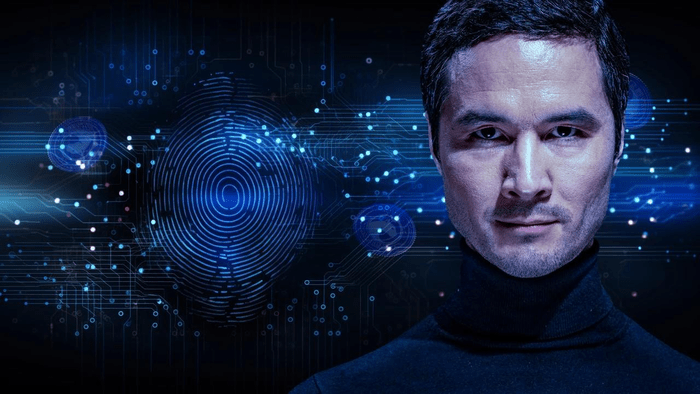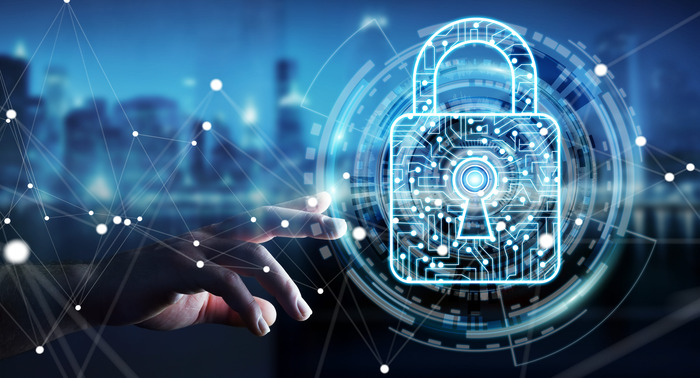Vladimir Okhotnikov is a developer of high-scale crypto projects, investor, and publicist promoting crypto business.
Vladimir Okhotnikov about IT crime
Judging by announced plans and spent resources, the Metaverses will very soon be quite an ordinary phenomenon in our everyday lives. Almost all major IT companies have announced the development of their own Metaverses. Whether they will succeed is another question, but there is no doubt that we will soon see a fully functional digital world.
And now we can’t even predict how it will look like, how the interaction between users and the system will work.
You can be sure that problems will arise and they will not only be technical. Human nature has not changed much in the last few millennia. Any good thing necessarily has a dark side. Technical innovations designed to do better are used as weapons. A beautiful work of art attracts intruders who want to possess it.
«How good it would be to live in a perfect world where there is only the bright side. Unfortunately, this is impossible. We’ve known since ancient times that crime knows no bounds. Millennia ago, the robbers infiltrated the highly protected burial chambers of the Egyptian pharaohs. Violent crimes are described in almost all ancient books. The advent of the Internet was also accompanied by the birth of its dark side…»
Vladimir Okhotnikov
As soon as the Internet and websites appeared, there were those willing to use them for criminal purposes. Is there any doubt that the Metaverses will be the number one target for a variety of criminals?
We have to be prepared for that, if we don’t want to, of course, turn the Metaverses into the digital equivalent of Tartuga.
Digital Tortuga
The mention of Tortuga was not accidental. Darknet became a peculiar dark reflection of the “normal” Internet (although, this normality is quite conditional). There you can find almost any criminal services and remain incognito. True, the secret services of the entire world are working on the problem of anonymity on the Darknet, however, the task is not solved yet.
Now, imagine a Metauniverse in the Darknet. Unfortunately, this is the reality of the future. Technology will create an isolated digital space where shady individuals will do shady business, and law-abiding citizens will go on excursions. And there will also be closely watched by representatives of the special services with the appearance of Agent Smith from the “Matrix”.
« It sounds like a fantasy, but “Dark Metauniverse” is almost inevitable. Now its appearance is limited by the high cost of development. Creating your own Metaverse is insanely expensive. However, in a few years for sure, there will be ready-to-use templates of digital virtual worlds …»
Vladimir Okhotnikov
These are all the stories that we know from fantastic blockbusters. However, now the fantasy is becoming a reality before our eyes, so we have a good chance to walk on digital Tortuga.
Daily crime
Darknet and Dark Metaverse are bright but extreme manifestations of digital crime. Far more common are “ordinary” crimes – perhaps less visible ones – but they are common to almost all of us. We don’t even know how to get into the Darknet, but we’re almost always dealing with all sorts of malicious viruses that want to steal our information or get into our wallets.
It is naive to think that, despite all defense systems, the Metaverses will be free from crime. If there are assets, there’s no doubt there’s someone willing to steal them.
« Every day we have a chance to become victims of cybercriminals. Our computers, mail, and social networks are attacked dozens of times a day. This is our normal day… Do you think scammers will pass by the Metaverses? This space with its economy, goods, assets will be their goal …»
Vladimir Okhotnikov
Blockchain provides users the opportunity to protect their property, however, the attackers will also not stand still. It’s a classic battle of attack and defense technology.
Let’s see what meta-universe users have to deal with.
Social engineering
Perfect IT protection does not guarantee your safety. A simple example: a wave of telephone fraud has swept the world. A person receives a phone call allegedly from the bank, and then a fake bank officer through psychological manipulation gets access to the person’s bank accounts and empties them.
It’s called social engineering which is psychological techniques that force the victim to perform the necessary manipulator actions.
In the case of telephone fraud, the manipulator uses only the voice, that is, the auditory impact.
In the Metaverses, at least one more element of influence is added namely visual. This means that the capabilities of manipulators increase dramatically.
At a minimum, users should know the threat and be ready to face it.
Piracy
IT piracy is the copying, use, and distribution of digital assets without the owner’s permission.
Here pirates may have problems, theoretically, developers of Metaverses can technically restrict the use of “unlicensed” assets. The other question is, will they? Any restrictions diminish the interest of users, so there are likely to be Metaverses that are free of license conditions.
A significant proportion of digital assets tied to the NFT are technologically protected and are out of pirate view, however, it is possible that NFT forgery will become real in the future.
Fraud
If you can’t take something away or fake something, you can fool the owner of an asset, deception, misinformation, or abuse of trust, all these techniques have been practiced for thousands of years, and they will definitely be present in the Metaverses.
In fact, right now, we can’t even imagine all the diversity of the meta-criminal world. The only thing we can say for sure is that crime will be intellectual.
Jurisdiction
The emergence of Metaverses raises another fundamental question: What is the law of digital space? It would seem that the answer is simple: it should be the legislation of the state in which the head office is registered. It works well… until decentralized Metaverses emerge.
Now the same problem is in relation, for example, to Bitcoin. What legislation does it obey? The technical infrastructure is distributed around the world and there is no legal entity responsible for the business. Attempts to extend national legislation to it have been unsuccessful.
Obviously, the US will try to control the Metaverses. This is not a claim against American authorities, it is simply a description of the logic of their actions in digital and crypto business. American regulators almost always pursue a policy of internalizing national legislation. How this will work is a big question.
«Decentralization is a completely unique thing. We are fundamentally moving away from subjectivity in decision-making. And this is not just about decisions within the Metaverse, it’s important to protect it from outside influences. Blockchains reliably protect the boundaries of the Metaverse…»
Vladimir Okhotnikov
Most likely, the Metaverses will have to form their own “internal” legislation and infrastructure such as security services, courts, and police.
Metaverses will become all attributes of the “real” world. And this is good, despite all the problems.


